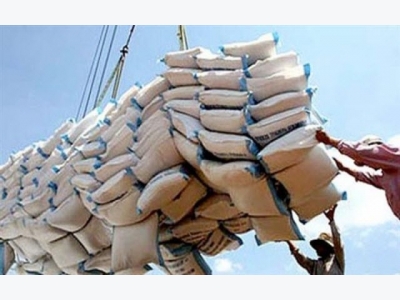Are rice export conditions still administrative?

The administrative procedure for obtaining the certificate of qualification for rice export by Vietnam Chamber of Commerce and Industry (VCCI) is too complicated and has many sub-licenses. The drafting agency should simplify the administrative procedures.
The amendment of Decree 109 is the basis for the development of the rice sector. Photo: The Internet.
Many sub-licenses
Recently, VCCI sent an official letter to the Ministry of Industry and Trade (MOIT) for comment on the Decree draft replacing Decree 109/2010/ND-CP on rice exports. According to this agency, the amendment of Decree 109 in the direction of expanding the right to export rice is very necessary. The Decree draft expressed this spirit by simplifying many conditions for investment in rice exports as well as registration of export contracts. With the abolition of the plan for rice exporters, the revision of Decree 109 is expected to help Vietnam's rice industry develop in the future.
However, the draft still has many "ambiguous", not specifically lead to difficulties for the businesses and these issues need the drafting agency revise.
An official letter signed by Mr. Dau Anh Tuan, Head of VCCI's Legal Department, stated that Article 4 of the draft required the storehouse to be special kind of rice storage, in line with the common standards promulgated by the MARD (Ministry of Agriculture and Rural Development, ensuring the food safety, had been granted a certificate of food safety eligibility.
Accordingly, Article 6 of the draft stipulated that the dossiers of application for certificates of rice export eligibility require the following contents: Inventory declarations made according to set forms and certified by Department of Industry and Trade; A copy of the certificate of food safety eligibility issued by a competent authority to a warehouse to meet the conditions of rice export in accordance with the regulations of the Ministry of Agriculture and Rural Development.
So, in order to be granted rice export license, the enterprises have to do 3 administrative procedures: Department of Industry and Trade endorses warehouse (Article 5 of draft); Department of Agriculture and Rural Development issues certificates of eligibility for food safety (Article 23.4.b of Decree 38/2012/ND-CP); The Ministry of Industry and Trade issues certificates of eligibility for rice export (Article 6 of the Draft).
Mr. Tuan commented that such administrative procedures were too complicated and had many sub-licenses and asked the drafting agency to simplify the administrative procedures.
In addition, the VCCI did not agree with the regulation “five years deadline for a certificate of eligibility for rice export”, because the regulation would increase the burden of the administrative procedures for the enterprises. Meanwhile, the enforcement of legal regulations on rice export had been implemented based on the reporting mechanism (Article 26.1, Article 26.2), the inspection and examination mechanism (Article 24.2.b, Article 24.6.a) and withdrawal of the certificate (Article 8). Therefore, it is recommended that the drafting agency removes the provisions of Article 6.5 on the duration of the certificate.
To still have the rules obstruct
A significant issue in comments of the VCCI is that Article 20 of the draft replaced the mechanism from registration of the rice export contracts to notice of rice export contract and through the Ministry of Industry's web portal. However, the draft still requires a mandatory contract notification for the customs clearance of goods
“It is imperative that the mandatory notification of the rice exporter will cause unnecessary obstacles. Meanwhile, when carrying out customs procedures for export, the enterprise has to submit customs declaration. Therefore, it is proposed that the drafting agency stipulates in the direction that, the rice export management agency will receive information from the customs office, instead of requiring the enterprises to carry out notification procedures”, VCCI proposed.
Regarding the condition of raw material areas or production linkages, according to the VCCI, this requirement would be preferential and supportive rather than a compulsory condition to empower or restrict business rights of the enterprises. If the draft obliged the condition, many enterprises would be unable to export, though they had the opportunity to buy rice from farmers and sell to foreigners.
In other words, this regulation would reduce the opportunities, narrow the consuming market for agricultural products of Vietnamese farmers. Therefore, it is proposed that the drafting agency removed the condition of the raw material areas or production linkages in Article 4 of the draft.
In addition, Article 4.1.a of the draft required the rice exporters had to have "a special warehouse for the storage of grains and rice and mills of grains and rice in accordance with the common standards promulgated by the MARD; ensure the conditions of food safety and had been granted a food safety eligibility certificate in accordance with the Food Safety Law".
But using the word "having" in the phrase "having a specialized store" here could lead to many different interpretations. As a result, the VCCI requested the drafting agency to amend in the direction of only requiring the enterprise to have the right to use the specialized warehouses and this right could be expressed through ownership or leasing or borrowing contracts.
Related news
 Northern Vietnamese corn farmers find way to sustainable development
Northern Vietnamese corn farmers find way to sustainable development Sustainable development of corn in northern Vietnam” in the northern mountainous province of Son La, with the aim of drawing up solutions for the sustainable
 Heavy rain flattens summer autumn rice in Mekong Delta
Heavy rain flattens summer autumn rice in Mekong Delta Continuous heavy rain has drenched part of the Mekong Delta and flattened vast summer autumn rice area in some provinces, slowing harvest
 Pig price doubles within two weeks
Pig price doubles within two weeks The pig price on July 17 leapt to VND45,000 a kilo, having stayed low in the range of VND20,000-25,000 a kilo for several months on end.